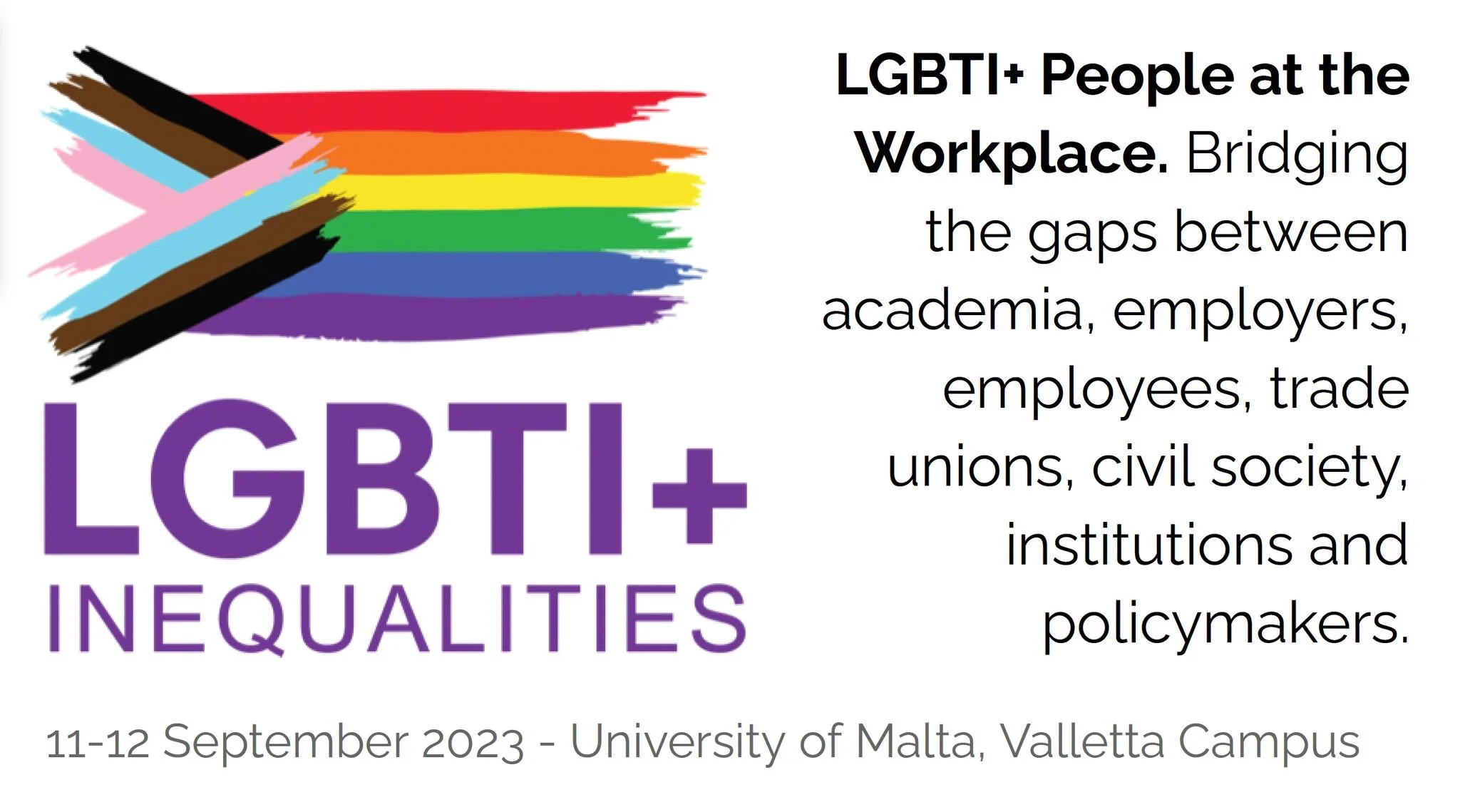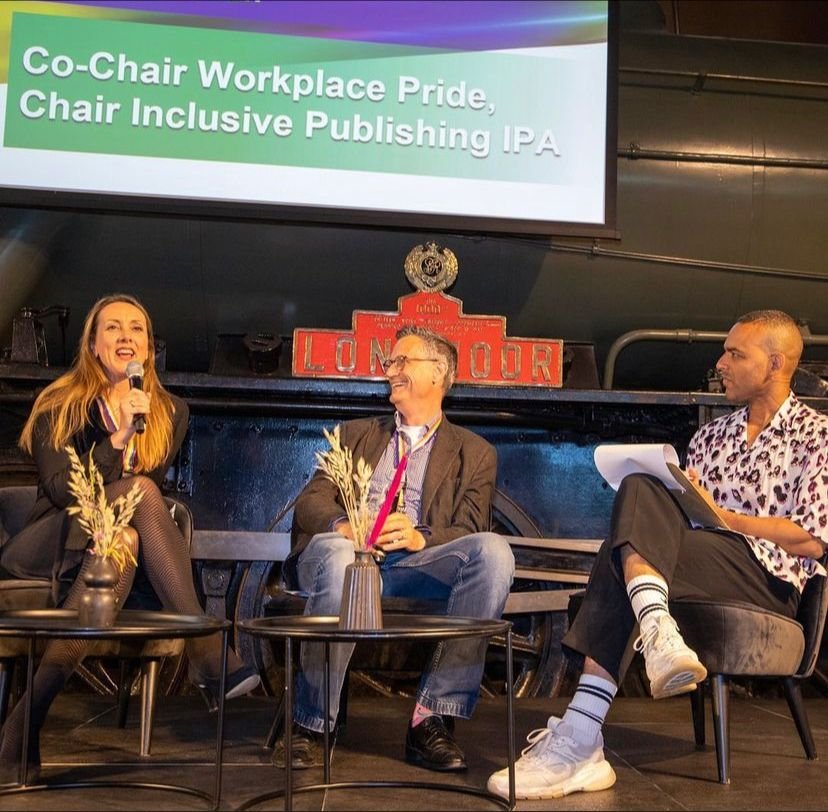My two cents on what areas of research warrant more attention, shared during the recent Workplace Pride conference in Utrecht.
Curious? Watch the interview and other video contributions!
Blog
My two cents on what areas of research warrant more attention, shared during the recent Workplace Pride conference in Utrecht.
Curious? Watch the interview and other video contributions!

FD conducted research on (binary) gender diversity at the Zuidas. Unfortunately, the results were disappointing, despite the efforts of many of these organizations. Men still call the shots at the Zuidas, while there is really no shortage of female recruitment. Thus, despite all promises and efforts, diversity at the top of major law and accountancy firms remains a challenge.
I recommend further research on the implemented D&I policy and perceived inclusion in the workplace and cordially invite all organizations to an introductory meeting with the Netherlands Inclusivity Monitor (NIM).
✒️ Joris Polman en Lisa van der Velden
🎨 Monique Wijbrands
📣 Kyra van Hinsberg, Annemarie de Bourbon de Parme, Maartje Laterveer and me
📊 Erwin Hoekstra
👨🏻💻 Dirk van der Straaten

© Het Financieele Dagblad
Under the umbrella of COST Action LGBTI+ Social and Economic (In)Equalities, my collaborators are organizing a Stakeholders' Meeting, strategically scheduled just ahead of the EuroPride Human Rights Conference in Malta. The aim is to bring together up to 50 participants from diverse sectors, including civil society organizations, trade unions, businesses, employees, academics, governments, politicians and policymakers. Individuals and organizations actively involved in addressing LGBTI+ workplace issues and familiar with the challenges faced by LGBTI+ individuals at work are invited to sign up (for free).

Important insights from my colleague Dr. Özge Bilgili’s work on the challenge of combining care duties and employment in academia, including helpful recommendations for next steps! Looking forward to seeing Utrecht University implement these. Made possible by the Utrecht Young Academy.
A supportive work environment for new academic parents, policies and provisions should:
1. Become more uniform and open
2. Account for career stages next to target groups
3: Focus on supporting teams as a whole
For more details, read the handout.

Handout Sleepless in Academia
On June 7th, I attended the annual event of the Goldschmeding Foundation where we learnt about the progress of several projects that are funded by the foundation, and listened to an inspiring keynote by Roanne van Voorst, anthropologist of the future.
Main takeaway: we can change societies for the better by collaborating! :)
The aftermovie can be viewed here.



I highly recommend listening to this meaningful conversation between Sharda Alibux and the producers of the Podcast Diversitijd! in which they discuss the influence of skin color on employees’ opportunities and the importance of monitoring using tools like the Netherlands Inclusivity Monitor (NIM).
13,000 CVs dropped with exactly the same qualities, just a different skin colour. The results showed that people with a non-white skin color were 117% less likely to get hired! Sharda Alibux, a member of team open hiring Start Foundation and responsible for New business development at the NIM, is concerned with getting relevant companies on board to monitor diversity and inclusiveness within the organization. How diverse is the group of employees, is everyone enjoying themselves, what is the work climate like? Many companies are doing a lot on D&I, but the results are marginal. During job interviews, toe-curling questions and prejudices are still put on the table! In this episode, the amazement is once again evident, and Sharda gets the men speechless. Listen soon!
Curious? Listen to the podcast!

I am very proud of Marjon Bohré, PhD student at Leiden University, for very systematically summarizing the scientific literature on humanness in organizations and, thus, exposing the gaps in our knowledge on the subject!
The conclusion of this scoping review? Little is known in the scientific field about humanness in organizations and even less about this topic in relation to leadership. There is growing research on the topic. However, besides the studies that examine dehumanization in organizations and the influence of negative leadership, research that informs us on the influence of positive leadership behavior on increasing humanity in organizations is also needed.
📖 Curious? You can read the scoping review here.

With Pride Month coming up, I would like share this informative blog by Florien Cramwinckel in which she summarizes, among other things, our literature review on evidence-based interventions to reduce prejudice based on sexual orientation and gender identity.
📖 Interested in the blog? Click here.
📖 Interested in our scientific article? Click here.
🔍 If you want to know more about evidence-based interventions to reduce prejudice based on sexual orientation and gender identity, you can read our literature review.

© Unsplash
I had the pleasure of attending the international Workplace Pride conference on May 26th in the wonderful setting of the Utrecht Railway Museum. Given this location, the panel conversation I contributed to with Michiel Kolman 🏳️🌈 and Ikenna Azuike was appropriately titled All Aboard. In this session, I could elaborate what works (effectively and scientifically) in LGBTIQ+ workplace inclusion! Thanks to the tireless efforts of the Worplace Pride staff, leadership and volunteers 💜
A video summary of the event can be found here: https://tinyurl.com/mtn75udm

Credit: Workplace Pride Foundation
In the new episode of the podcast Diversitijd, I talked to Hannelore Zwitserlood, Renzo Deurloo, and Occo Lijding about the bottlenecks and opportunities in the D&I policy of organizations and the importance of monitoring (e.g., via exit interviews) to deepen this policy.
During the discussion, various insights and practical recommendations from our research project Het moet wel werken, together with Diversity at work, InclusieNL and Goldschmeding Foundation were discussed.
Listen to the podcast here, or on your favorite podcast app.
